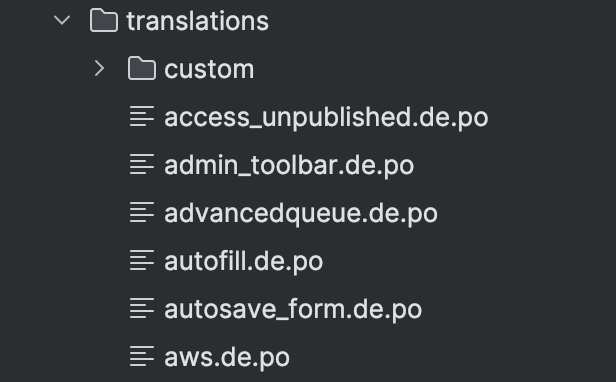· 3 min read
Mock HTTP requests in Drupal functional tests
Learn how to mock all external requests effectively in Drupal functional tests.

When writing functional tests in Drupal (BrowserTestBase or FunctionalJavascript), your code may sometimes make external requests. However, to ensure tests remain stable and predictable, they should not rely on external services. This article explains how to mock all external requests effectively.
Creating a Test Module
First, let’s create a small test module:
test_mock_request.info.yml
name: Test mock request
description: 'Mock requests in tests.'
type: module
package: Testing
version: VERSIONThe key to this approach is registering a custom Guzzle middleware. You can learn more about middlewares here. To register our middleware, we need a services.yml file.
test_mock_request.services.yml:
services:
test_mock_request.http_client.middleware:
class: Drupal\test_mock_request\MockHttpClientMiddleware
arguments: ['@request_stack', '@state']
tags:
- { name: http_client_middleware }Next, let’s define our middleware class:
src/MockHttpClientMiddleware.php
<?php
namespace Drupal\test_mock_request;
use Drupal\Core\State\StateInterface;
use GuzzleHttp\Psr7\Response;
use function GuzzleHttp\Promise\promise_for;
use Psr\Http\Message\RequestInterface;
use Symfony\Component\HttpFoundation\RequestStack;
/**
* Sets the mocked responses.
*/
class MockHttpClientMiddleware {
/**
* The request object.
*
* @var \Symfony\Component\HttpFoundation\Request
*/
protected $request;
/**
* The state service.
*
* @var \Drupal\Core\State\StateInterface
*/
protected $state;
/**
* MockHttpClientMiddleware constructor.
*
* @param \Symfony\Component\HttpFoundation\RequestStack $requestStack
* The current request stack.
* @param \Drupal\Core\State\StateInterface $state
* The state service.
*/
public function __construct(RequestStack $requestStack, StateInterface $state) {
$this->request = $requestStack->getCurrentRequest();
$this->state = $state;
}
/**
* Add a mocked response.
*
* @param string $url
* URL of the request.
* @param string $body
* The content body of the response.
* @param array $headers
* The response headers.
* @param int $status
* The response status code.
*/
public static function addUrlResponse($url, $body, array $headers = [], $status = 200) {
$items = \Drupal::state()->get(static::class, []);
$items[$url] = ['body' => $body, 'headers' => $headers, 'status' => $status];
\Drupal::state()->set(static::class, $items);
}
/**
* {@inheritdoc}
*
* HTTP middleware that adds the next mocked response.
*/
public function __invoke() {
return function ($handler) {
return function (RequestInterface $request, array $options) use ($handler) {
$items = $this->state->get(static::class, []);
$url = (string) $request->getUri();
if (!empty($items[$url])) {
$response = new Response($items[$url]['status'], $items[$url]['headers'], $items[$url]['body']);
// @phpstan-ignore-next-line
return promise_for($response);
}
elseif (strstr($this->request->getHttpHost(), $request->getUri()->getHost()) === FALSE) {
throw new \Exception(sprintf("No response for %s defined. See MockHttpClientMiddleware::addUrlResponse().", $url));
}
return $handler($request, $options);
};
};
}
}How It Works
This middleware runs before every request is executed, allowing us to:
- Return a predefined mock response if one exists for the request URL.
- Allow local requests to pass through.
- Throw an exception if no response is defined.
Using the Middleware in Tests
In our tests, we can call addUrlResponse() to define mock responses:
MockHttpClientMiddleware::addUrlResponse('https://example.com/file.json', '{ "foo": "bar"}', ['Content-Type' => 'application/json']);Activate this functionality by adding your test module to the $modules property of your test class.
